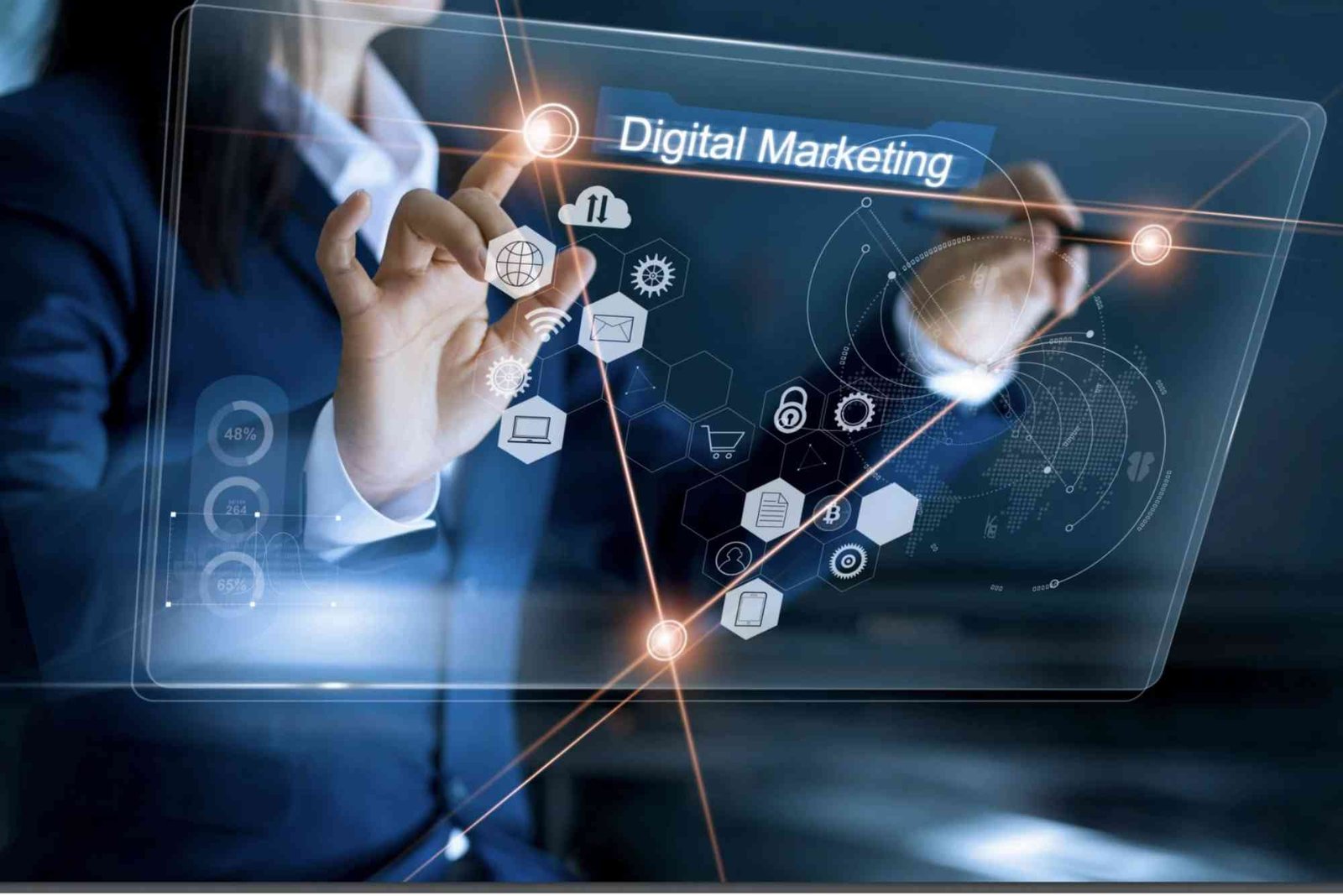Introduction
In today’s fast-paced digital world, every business must learn how to connect with its audience online. The term “digital marketing channels” refers to the various platforms and methods businesses use to reach customers digitally. Whether it’s through social media, search engines, or email, these channels help brands communicate, engage, and convert audiences into loyal customers. Understanding how they work is essential for creating a strong digital presence and achieving measurable results. In this guide, you’ll discover what digital marketing channels are, why they matter, and how to use them effectively for your business.
What Are Digital Marketing Channels?
Digital marketing channels are online platforms that help businesses communicate with potential and existing customers. These include search engines like Google, social media platforms such as Facebook or Instagram, email, websites, and mobile apps. Each channel serves a unique purpose and offers specific advantages depending on your marketing goals. For example, social media builds brand awareness, while email marketing focuses on nurturing customer relationships. Using these channels together creates a powerful digital marketing ecosystem that drives traffic, engagement, and conversions.
Digital marketing channels are not just about promotion — they’re about connecting with your audience at the right time, in the right place, and with the right message. They allow businesses to measure results, analyze data, and adjust strategies quickly — something traditional marketing methods can’t offer.
Why Digital Marketing Channels Are Important
In the modern marketplace, consumers spend most of their time online. Whether they’re shopping, researching, or connecting with others, the digital space offers countless opportunities to engage them. By using multiple digital channels effectively, businesses can:
-
Increase visibility and brand awareness
-
Reach targeted audiences with precision
-
Measure campaign performance in real-time
-
Build long-term relationships with customers
-
Generate more leads and conversions
Simply put, digital marketing channels bridge the gap between brands and their audiences, making marketing more personal and data-driven.
The Most Effective Digital Marketing Channels
Search Engine Optimization (SEO)
SEO is one of the most powerful digital marketing channels because it helps your website appear higher on search engines like Google. When people search for products or services related to your business, you want to be visible. Effective SEO involves optimizing your website’s content, improving page speed, and using relevant keywords like “What Are Digital Marketing Channels” naturally throughout your pages. The goal is to attract organic traffic that converts.
To get started, focus on creating high-quality content that answers user questions. Use clear headings, proper meta tags, and internal linking strategies. For instance, check out this Related Marketing & Advertising article for examples of how engaging content can improve your SEO ranking.
Pay-Per-Click Advertising (PPC)
PPC is a paid digital marketing channel that allows you to display ads on platforms like Google Ads or Bing Ads. You pay only when someone clicks your ad. It’s an excellent option for driving targeted traffic quickly. Businesses use PPC to promote new products, boost visibility, or compete for competitive keywords.
The key to success in PPC is choosing the right keywords, setting a realistic budget, and continuously monitoring ad performance. With smart data insights, you can adjust your campaigns for better results.
Social Media Marketing
Social media platforms like Facebook, Instagram, LinkedIn, and TikTok are among the most engaging digital marketing channels today. They allow brands to connect directly with their audience through posts, stories, videos, and ads. Social media marketing isn’t just about promotion — it’s about storytelling and creating emotional connections.
To make the most of social media, understand your audience’s interests and post consistently. Use visuals, short videos, and interactive polls to boost engagement. Social media analytics tools can help you understand what content performs best, making it easier to refine your strategy.
Content Marketing
Content marketing focuses on creating valuable and informative material that educates and entertains your audience. Blog posts, eBooks, videos, infographics, and podcasts are all forms of content that drive engagement and authority. Quality content not only improves your SEO but also builds trust with your customers.
The best approach to content marketing is to create material that solves real problems. Address common pain points, share tips, and provide actionable insights. For example, if your audience wants to know “What Are Digital Marketing Channels,” a detailed blog like this one provides clarity and value — encouraging them to stay longer on your site.
Email Marketing
Despite being one of the oldest digital marketing channels, email marketing remains highly effective. It helps you communicate directly with your customers, build loyalty, and drive repeat sales. Personalized email campaigns can achieve higher engagement rates compared to other forms of marketing.
To optimize your email marketing, segment your audience, personalize messages, and keep your tone conversational. Use automation tools to send welcome emails, newsletters, or product recommendations at the right time.
Affiliate Marketing
Affiliate marketing allows other people or companies to promote your products and earn a commission for each sale. It’s a cost-effective way to expand your reach without large upfront expenses. This channel works well when you have a loyal audience or influencer partnerships.
To succeed with affiliate marketing, choose reliable affiliates who genuinely align with your brand values. Provide them with quality promotional materials and track performance through affiliate software.
Influencer Marketing
Influencer marketing leverages the reach of individuals who have large, engaged online followings. These influencers can introduce your product to their audiences authentically. When done right, influencer partnerships can increase credibility, reach, and sales.
To choose the right influencer, focus on engagement rate rather than follower count. Micro-influencers often deliver better conversion results because their audiences trust them deeply.
Video Marketing
Video marketing is rapidly becoming a must-have digital marketing channel. Platforms like YouTube, Instagram Reels, and TikTok allow brands to share visual stories that capture attention. Videos can explain complex topics quickly, making them one of the most engaging content forms online.
When creating videos, keep them short, informative, and visually appealing. Use storytelling techniques and clear calls to action. Optimize your titles, tags, and descriptions with relevant keywords to improve discoverability.
Mobile Marketing
With most online users What Are Digital Marketing Channels accessing content via smartphones, mobile marketing has become essential. This channel includes SMS marketing, mobile-friendly websites, and app-based advertising. The goal is to reach users where they spend most of their time — on their phones.
To make your mobile marketing effective, ensure your website is responsive and loads quickly. Simplify navigation and create mobile-optimized email designs for better engagement.
Display Advertising
Display advertising uses visual ads, such as banners or pop-ups, to reach potential customers across websites. While it may seem old-fashioned, it’s still effective for building brand awareness and retargeting visitors who previously interacted with your site.
For the best results, design eye-catching visuals and use clear messaging. Retargeting campaigns help you stay top-of-mind for users who didn’t convert the first time.
Practical Tips to Use Digital Marketing Channels Effectively
To get the most from your digital marketing channels, follow these practical strategies:
-
Define clear goals before launching campaigns.
-
Understand your audience’s behavior, needs, and online habits.
-
Use a mix of organic and paid marketing strategies.
-
Continuously analyze metrics to improve performance.
-
Stay updated with new tools and trends.
-
Focus on providing value, not just promotions.
-
Keep a consistent brand voice across all platforms.
Building an integrated strategy ensures that all your marketing channels work together harmoniously, boosting both visibility and ROI.
How to Choose the Right Digital Marketing Channels
Selecting the right digital marketing channels depends on your business goals, target audience, and resources. For example, if your goal is brand awareness, focus on social media and content marketing. If you want immediate conversions, try PPC or influencer campaigns.
Consider your audience demographics and where they spend their time online. A younger audience may be more active on TikTok or Instagram, while professionals may prefer LinkedIn or email newsletters. Combine insights from data analytics and customer feedback to refine your approach. You can explore additional insights in this What Are Digital Marketing Channels guide.
Common Challenges in Managing Digital Marketing Channels
Managing multiple digital marketing channels can be overwhelming. Some common challenges include:
-
Maintaining consistent branding across platforms
-
Allocating budgets efficiently
-
Measuring accurate ROI
-
Keeping up with changing algorithms and trends
-
Balancing automation with personalization
To overcome these issues, use reliable analytics tools, invest in training, and stay adaptable. Continuous learning ensures you remain competitive in the digital landscape.
Digital marketing channels are the foundation of every successful online strategy. By understanding how each channel works and applying the right tactics, you can attract your ideal audience, boost engagement, and achieve measurable business growth. The key is consistency, creativity, and data-driven decision-making.
Start building your multi-channel strategy today and strengthen your digital presence. Learn more about effective marketing practices and stay ahead in the ever-evolving digital landscape.
FAQs
What are the main types of digital marketing channels?
The main types include SEO, PPC, social media, content marketing, email, influencer, affiliate, and mobile marketing. Each channel plays a unique role in your marketing strategy.
Which digital marketing channel is most effective?
The effectiveness depends on your goals. SEO and content marketing are great for long-term growth, while PPC and social media deliver faster results.
How do digital marketing channels help businesses?
They help businesses increase visibility, reach targeted audiences, measure performance, and build relationships with customers.
How can small businesses use digital marketing channels effectively?
Start with cost-effective methods like social media, SEO, and email marketing. Focus on creating authentic content and engaging your audience consistently.
What is the difference between digital and traditional marketing channels?
Traditional marketing uses offline platforms like TV and print, while digital marketing uses online platforms such as search engines, websites, and social media.







